Scientific Method Teaching Resources
Teach the scientific method in your science classes this school year with printable worksheets, classroom science posters and more teacher-created resources made for elementary science teachers.
Explore the 7 steps of the scientific method, teach students how to form a hypothesis and draw conclusions as they start to think like scientists in the classroom!
New to teaching this section of the science curriculum, or just looking for some tips on engaging your students? Read on for a primer from our teacher team, including a look at the different steps of the scientific method and ways to explain the concept to your students.
What Is the Scientific Method? A Kid-Friendly Definition
Let's start with a student-friendly way to explain the method and why we discuss it in science class.
The scientific method is a process that scientists all around the world use hen they're conducting experiments and investigations. The method helps them to answer questions and solve problems.
But you don't have to be a scientist working on a major project to get the benefits of applying the method!
In science class, students might use the scientific method to explore the properties of different materials or to investigate the behavior of living organisms. Kids can also apply the method in math class, gathering data and analyzing patterns or designing experiments to test hypotheses.
What Are the Steps of the Scientific Method?
So how does the scientific method work? It's broken down into a series of steps that make it easy to follow.
- Ask a Question — At the start, scientists or student scientists ask a question about a topic they are interested in. For example, they may ask if plants grow better with more or less water.
- Research — Next, you conduct research to learn more about your question. This could involve reading books, watching videos or even talking to experts in the field.
- Form a Hypothesis — This is a new vocabulary term for most students. A hypothesis is another word for an "educated guess" that students make about what they think the answer to their question might be. They should use their research to inform this guess. In the example of the question of whether or not plants grow better with more or less after, a student may hypothesize that plants will grow better with more water.
- Test the Hypothesis — In the next step, students design and conduct an experiment to test their hypothesis. They will manipulate one or more variables and observe what happens. In this step, students should collect data and learn about "control groups," "independent variables," and "dependent variables."
- Analyze the Data — Once they've tested their hypothesis, it's time for your young scientists to look at the data they collected and organize it in a way that helps them draw conclusions. It may help to have your students make graphs or charts to make it easier to analyze the data.
- Draw Conclusions — Based on their analysis, it's time for students to draw conclusions about whether their hypothesis was correct or not. In this step, students should be making "inferences" and "predictions."
- Communicate Results — In the final step of the method, students share their findings with others, such as their classmates or you. This is also the step where students write "conclusions" and "abstracts."
Who Created the Scientific Method?
Are you looking for some background information to engage your students on this core concept of science?
Introduce them to the mystery behind just who created the scientific method! There are a variety of famous men who have been credited with making this world-renowned process of investigation from Italian astronomer and physicist Galileo Galilei to British philosopher Sir Francis Bacon. Others say an Arabic physicist named Ibn al-Haytham should get more credit for his role in giving us a way to systematically go about forming a hypothesis and testing it.
So what's the answer?
Why not challenge your students to do a little ... investigation?
- Plus Plan
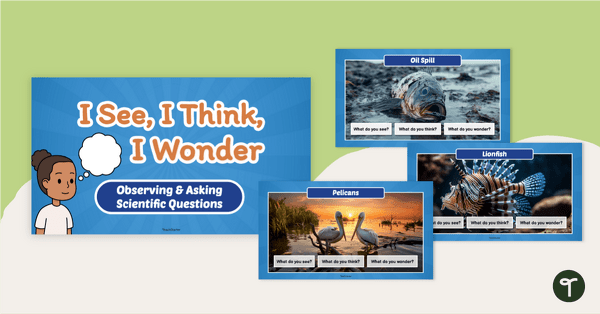
I See, I Think, I Wonder - Science Inquiry PowerPoint
Teach students to ask scientific questions, make observations, and inspire discussions with this ‘I See, I Think, I Wonder’ Science Inquiry PowerPoint.
- Plus Plan
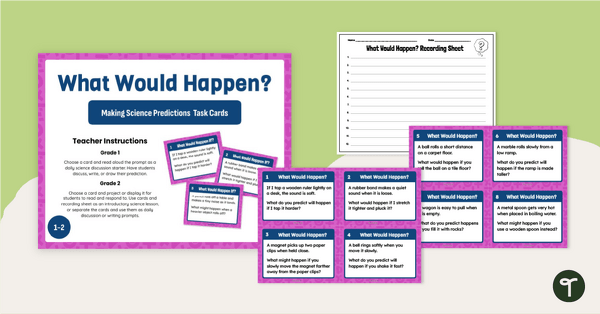
What Would Happen? Science Prediction Activity Cards
Read, discuss, and write scientific predictions in the classroom with a set of printable Science Prediction Activity Cards for students in Grades 1-3.
- Plus Plan
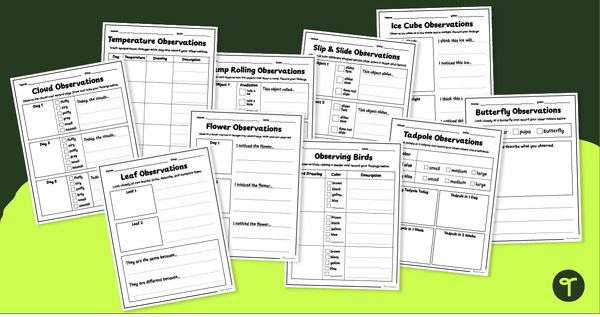
Scientific Prediction & Observation Templates (K-2)
Introduce your early learners to scientific inquiry skills with a set of printable Scientific Observation templates.
- Free Plan
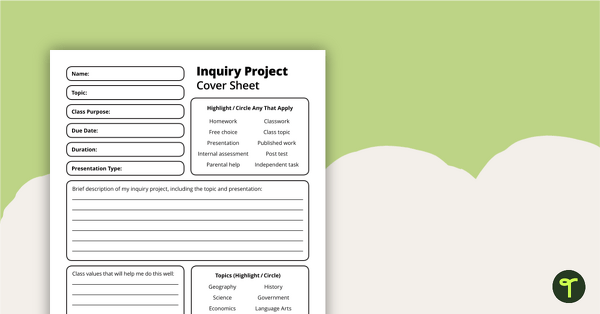
Inquiry Project - Template
A diverse template to help students craft inquiry questions to produce different types of research projects.
- Plus Plan
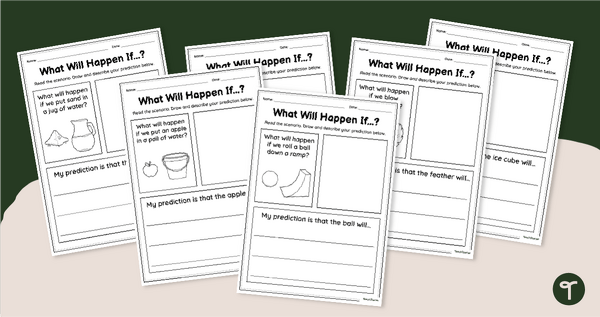
'What Will Happen?' Science Prediction Worksheet Pack
Practice making scientific predictions with your little learners using a set of printable Science Prediction Worksheets.
- Plus Plan
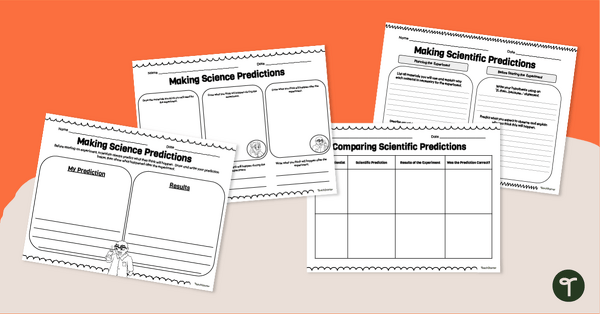
Making a Prediction in Science Worksheets (Differentiated)
Introduce your students to making predictions in science with a set of differentiated Scientific Prediction Worksheets.
- Plus Plan
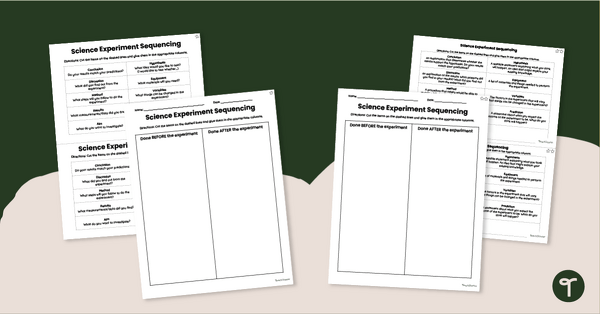
Experimental Design Worksheet - Scientific Method Cut and Paste
Sequence the steps in the scientific method with a pair of differentiated Experimental Design Worksheets.
- Plus Plan
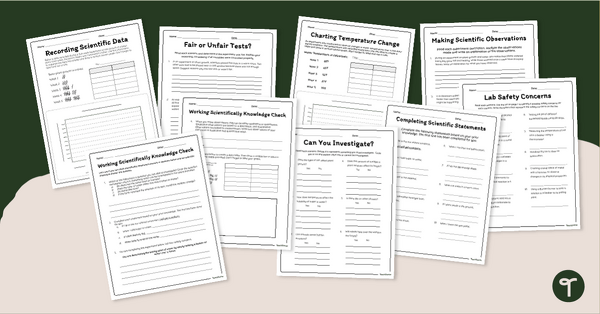
Process Skills for Science Worksheet Pack
Improve your students' skills for science class with printable Scientific Process Skills Worksheets.
- Free Plan
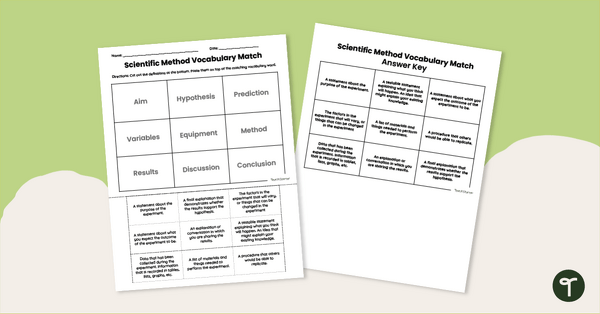
Scientific Method Worksheet - Vocabulary Match
Use a Scientific Method Worksheet to review key science experiment vocabulary words.
- Free Plan
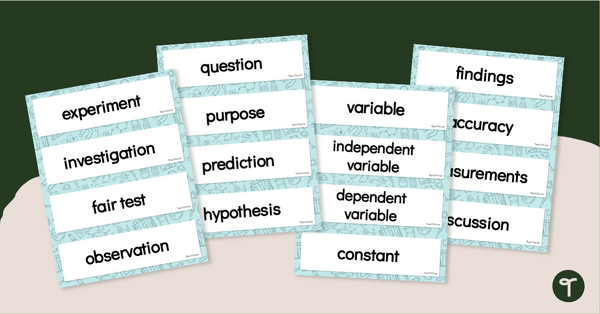
Scientific Method Word Wall Vocabulary
Introduce your students to vocabulary surrounding the Scientific Method with a printable science word wall.
- Free Plan
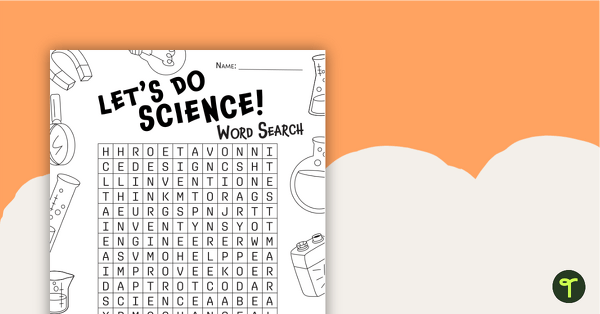
Innovate and Invent! Science Word Search
Build your students’ vocabulary around the topics of innovation and invention with a word search worksheet.
- Plus Plan
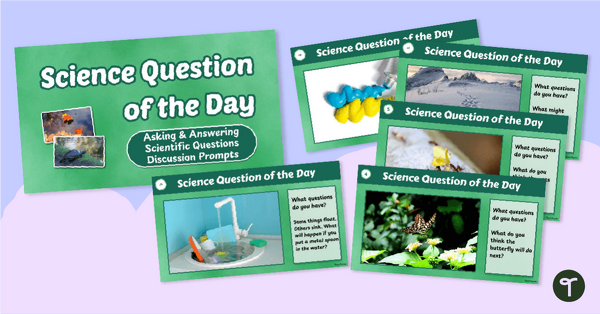
Science Question of the Day Discussion Prompts
Teach your students to ask questions, observe the world, and make scientific predictions with our Science Question of the Day Discussion Prompt Slide Deck.
- Plus Plan

'Is It An Investigable Question?’ Sorting Activity
Help students determine examples of investigable science questions with our ‘Is It An Investigable Question’ sorting activity.
- Plus Plan
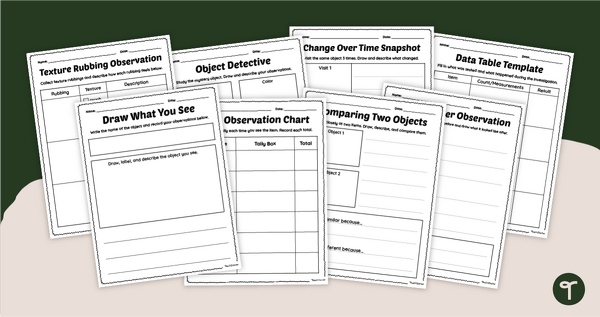
Scientific Observation Graphic Organizers
Record and organize scientific data with printable Scientific Observation Graphic Organizers for kids.
- Plus Plan
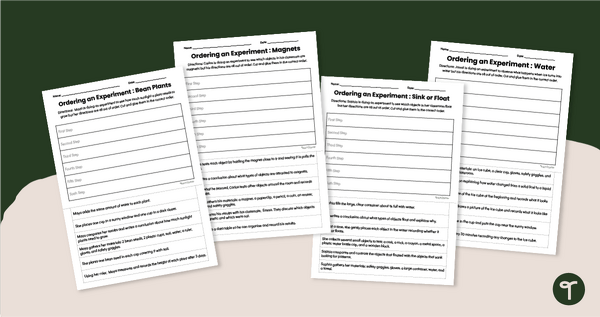
Ordering Steps in a Scientific Process Worksheet Pack
Help your 3rd-5th-grade students strengthen their understanding of the science investigation process with this set of cut-and-paste sequencing worksheets.
- Plus Plan
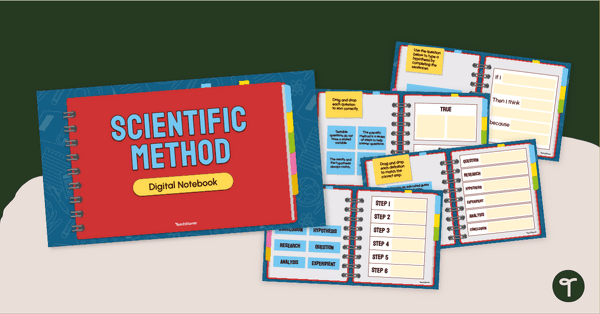
Scientific Method Digital Learning Activity
Help your students understand the steps in the scientific process with an engaging Scientific Method Digital Learning Notebook activity.
- Plus Plan
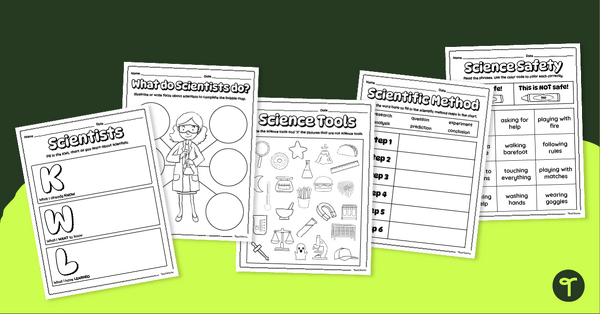
What is a Scientist? Worksheet Pack
Help your students learn what a scientist is and what scientists do with a set of printable science worksheets for primary grades/
- Plus Plan
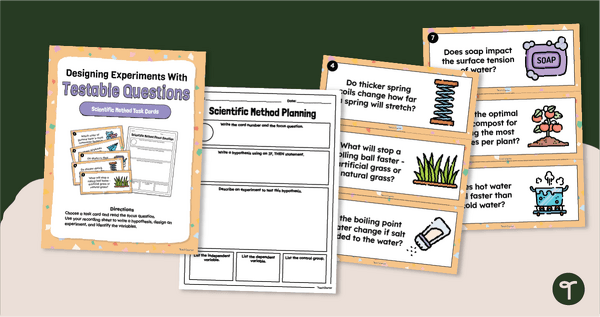
Using the Scientific Method Practice Task Cards
Help your students design scientific method experiments with a set of printable Scientific Method Practice Task Cards.
- Plus Plan
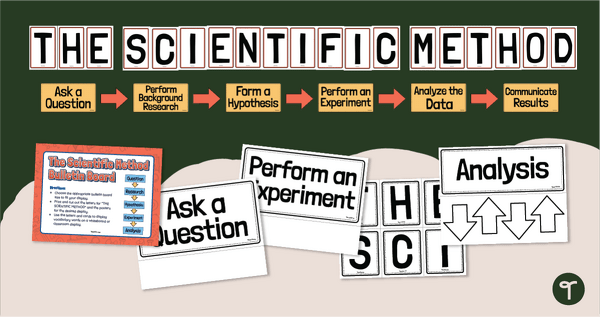
Scientific Method Bulletin Board Set
Use a Scientific Method Bulletin Board set to introduce your students to the steps in the scientific process.
- Plus Plan
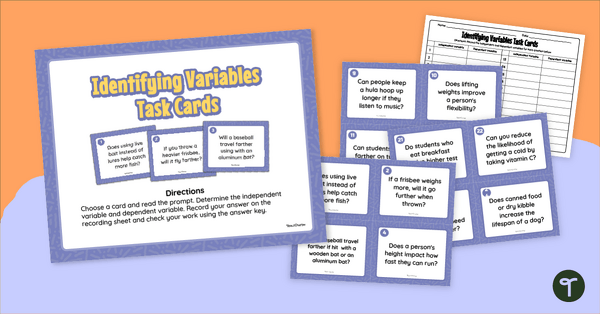
Independent vs Dependent Variable Worksheet & Task Cards
Practice identifying independent and dependent variables with a printable worksheet and task cards.
- Plus Plan
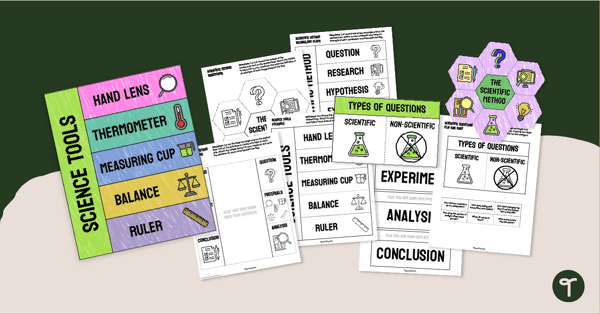
Foldable Scientific Method Graphic Organizer Pack
Use a foldable Scientific Method Graphic Organizer to help your students organize their learning about the scientific process.
- Plus Plan
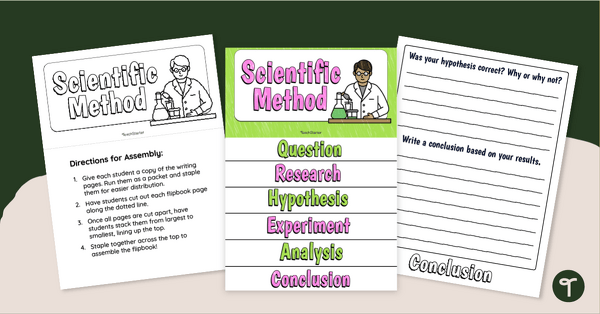
Scientific Method Flip Book Template
Create a Scientific Method Flip Book to record scientific predictions, observations, and conclusions with a printable science flip book template.
- Plus Plan
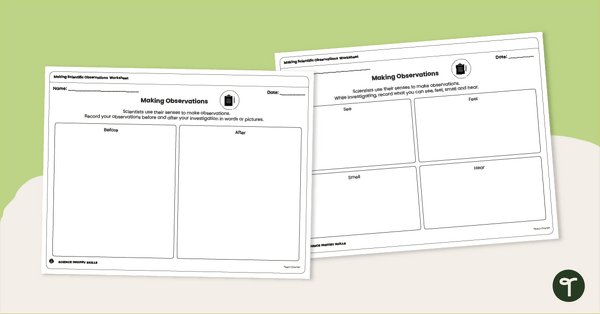
Making Scientific Observations Worksheets
Use this set of two worksheets to help your students record their own observations during science experiments and projects.
- Plus Plan
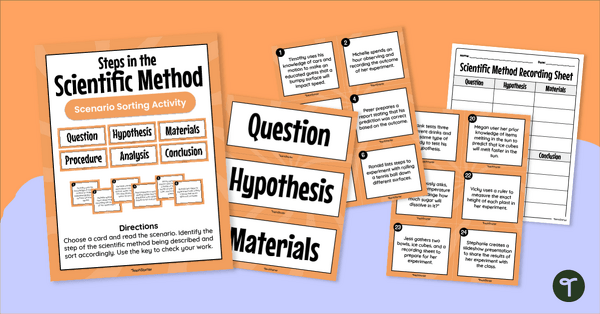
Scientific Investigation Scenarios - Sorting Activity
Analyze scientific investigation scenarios to determine which stage in the scientific method is being described with a printable Scientific Method Sorting Activity.
- Plus Plan
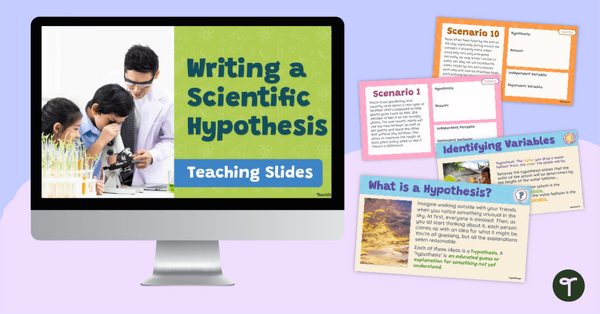
Writing a Scientific Hypothesis - Lesson Slides
Teach your students how to write a scientific hypothesis with an interactive slide deck and hypothesis writing practice activity.
- Plus Plan
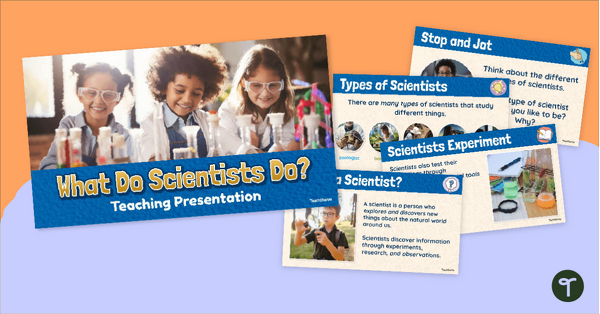
What Do Scientists Do? Teaching Slides
Discover what scientists do, the tools they use, and more with our 'What Do Scientists Do?' Teaching Presentation.
- Plus Plan
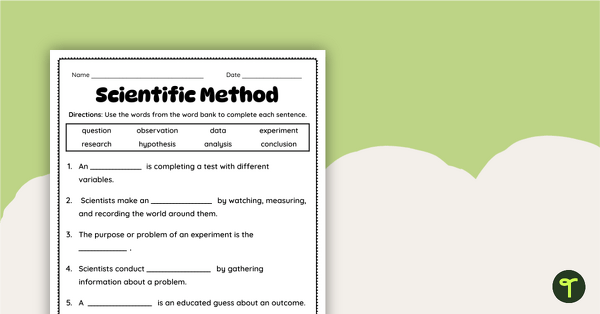
Scientific Method Cloze Worksheet
Review scientific method vocabulary with a printable Scientific Method Cloze Worksheet.
- Free Plan
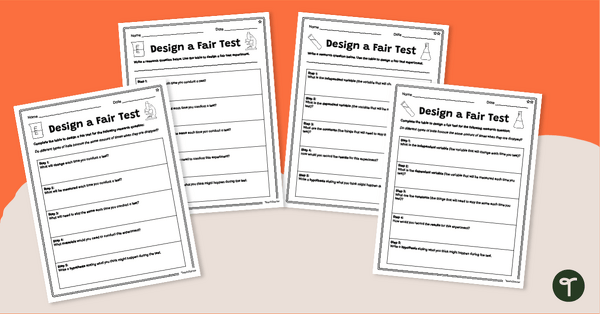
Design a Fair Test - Differentiated Experimental Design Worksheets
Use a differentiated experimental design worksheet to introduce your students to the concept of fair testing in science.
- Free Plan
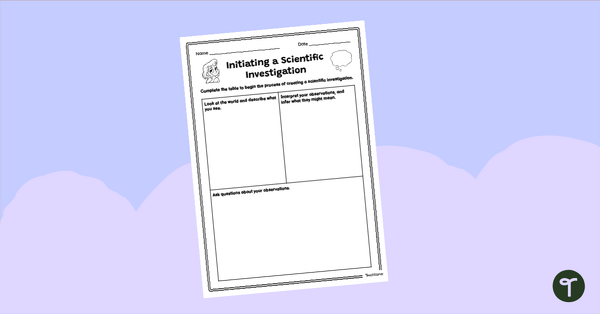
Starting a Scientific Investigation Worksheet
Help students begin the process of a scientific investigation with an introduction to the scientific method activity sheet.
- Plus Plan
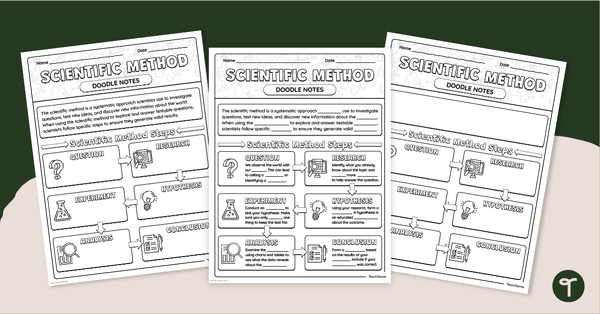
Differentiated Scientific Method Doodle Notes Templates
Use scientific method doodle notes to turn learning the scientific method into a meaningful note-taking session for students!
- Plus Plan
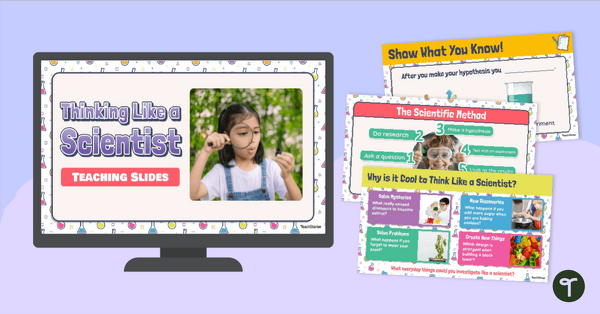
PowerPoint on the Scientific Method - Thinking Like a Scientist
Introduce your students to the scientific process with an interactive PowerPoint on the scientific method.
- Plus Plan
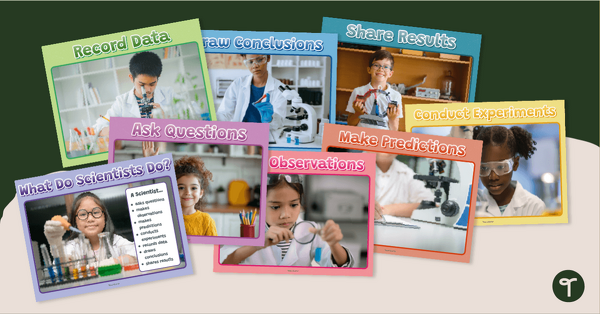
Scientific Method - Scientist Poster Pack (K-1)
Help your little learners understand the scientific method with a set of ‘What Do Scientists Do? Kindergarten Science Posters.